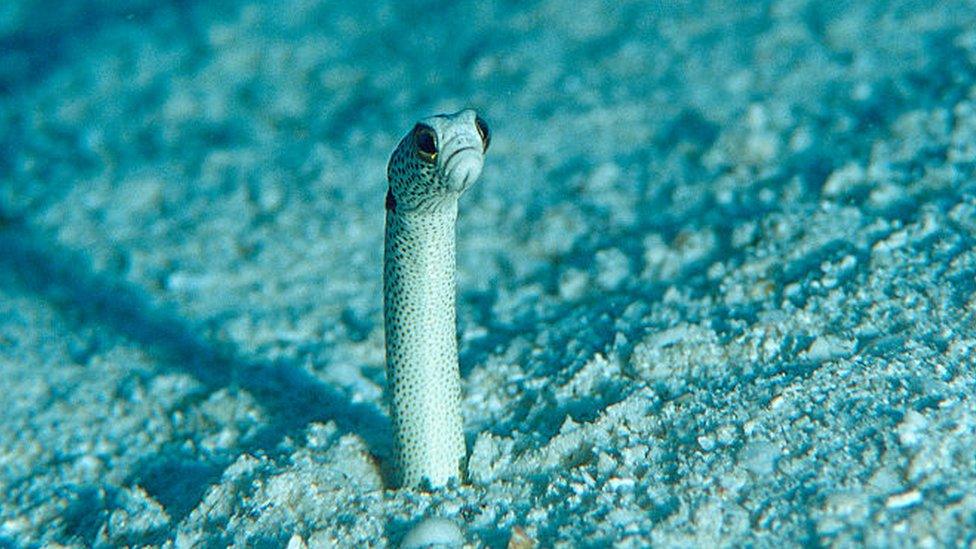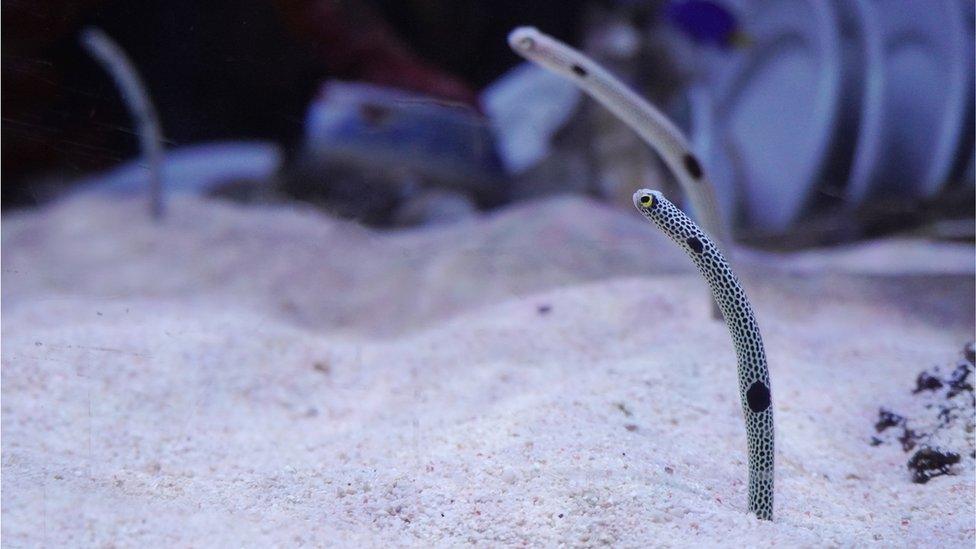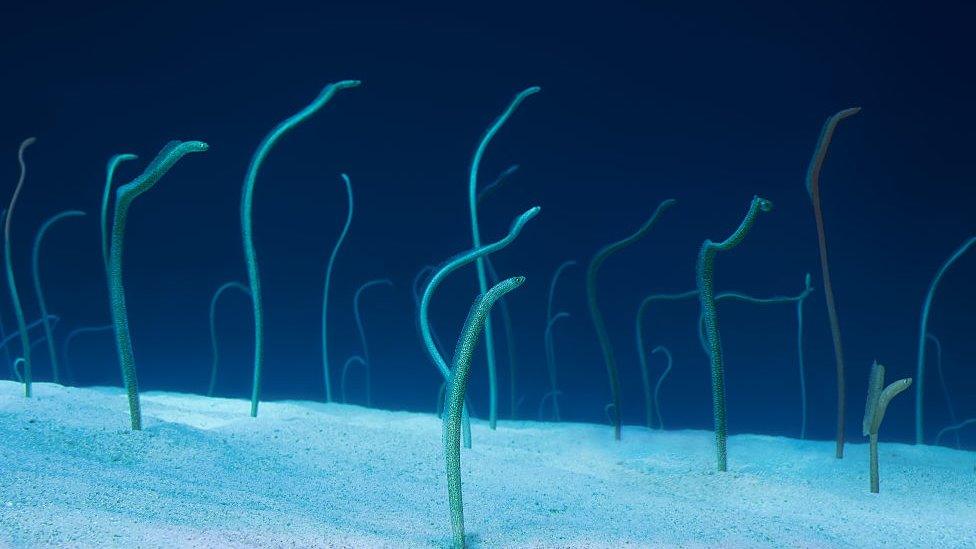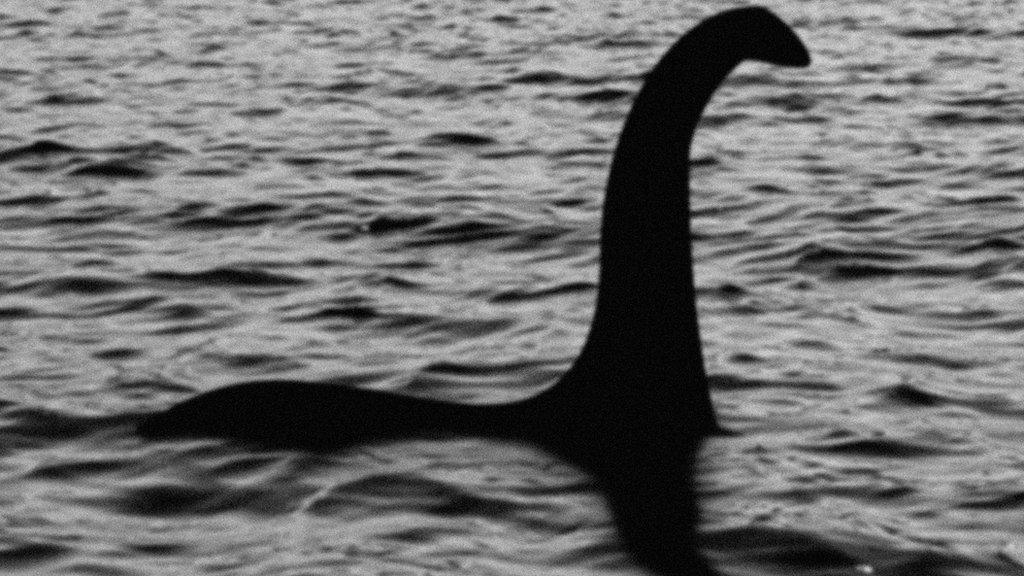Garden eels 'forgetting about humans' need people to video-chat
- Published
Sumida Aquarium hopes the sub-aqua video-calls will remind the eels humans are friendly
Incoming FaceTime call from... some Japanese eels.
Keepers at Toyko's Sumida Aquarium, which has been closed since 1 March due to the coronavirus pandemic, are starting to worry about their garden eels.
The sensitive little creatures had become used to seeing hundreds of faces peering into their tanks.
Now the aquarium is deserted they've started to dive into the sand whenever their keepers walk past.
This makes it hard to check they're healthy.
The aquarium says the eels are "forgetting about humans" and is making what it calls an "emergency plea".
"Could you show your face to our garden eels from your home?"
Yes, they're asking people to call in for a sub-aqua video chat and remind the eels that humans are friendly.

Petition to make the next Pixar film about garden eels
"Creatures in the aquarium don't see humans except keepers and they have started forgetting about humans," the aquarium wrote on Twitter.
"Garden eels in particular disappear into the sand and hide every time the keepers pass by."
The eels are particularly sensitive - and the aquarium is keen to reacquaint the 300 eels it homes with humans so they can carry out important health checks on them.

Garden eels are usually around 35 to 40cm
It's placing five tablets, external facing towards the tank in a "face-showing festival" scheduled for 3 to 5 May.
Unfortunately, if you love eels but also love Google phones or PCs, you'll have to sit this one out - the aquarium is only offering the option to connect with the eels over Apple's FaceTime app.
Garden eel facts

Garden eels are found from the Red Sea to East Africa, Japan and parts of Australia
Garden eels live in sandy burrows that they dig tail-first and coat with mucus to stop the burrow collapsing. They're some of the sea's little builders. When it comes round to mating season the males and females move their burrows closer to each other.
They live in colonies of several hundred and each eel has its own burrow - with the largest male usually living in the centre burrow, according to the Georgia Aquarium.
When we see them it's usually only a quarter of their body that is poked up out of the sand - the rest stays in their burrow. They rarely leave, even to mate.
You could say they're the original self-isolaters.


Follow Newsbeat on Instagram, external, Facebook, external, Twitter, external and YouTube, external.
Listen to Newsbeat live at 12:45 and 17:45 weekdays - or listen back here.
- Published9 April 2020

- Published31 March 2020

- Published5 September 2019
